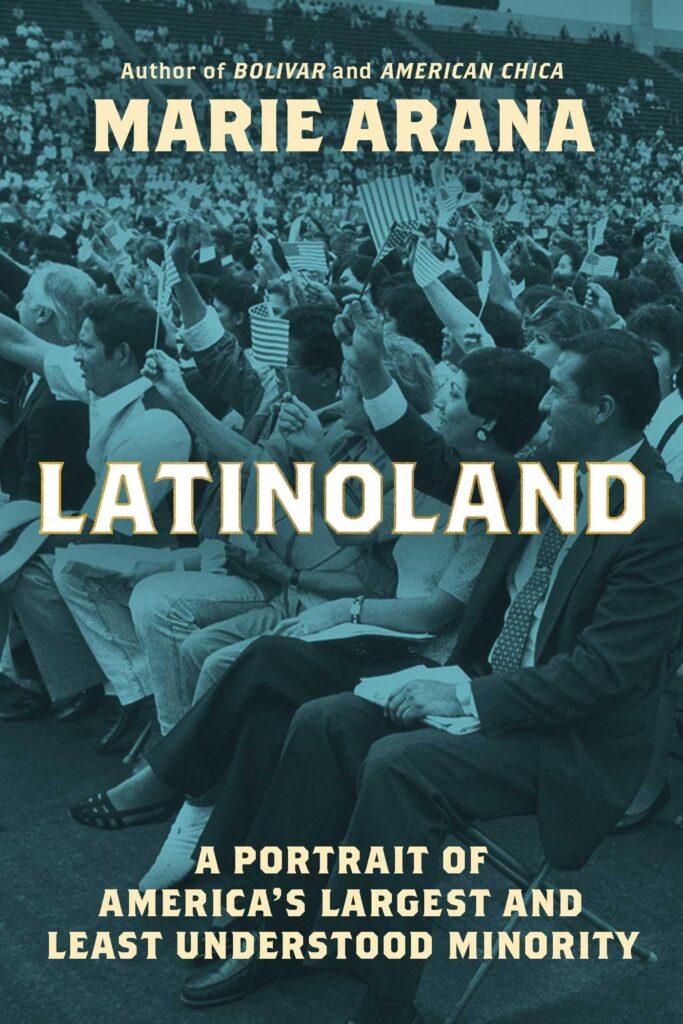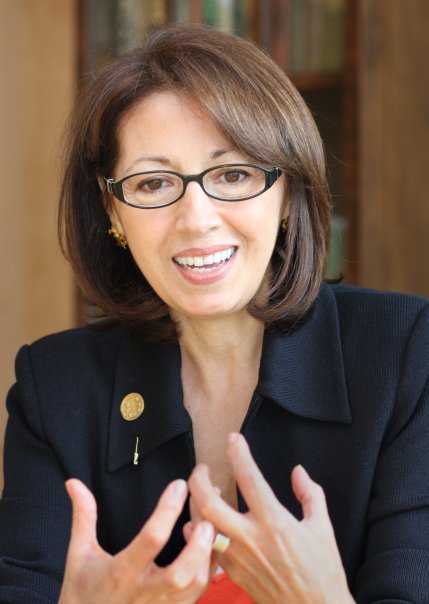
LatinoLand: America’s Largest and Least Understood Minority
A new sweeping yet personal overview of the Latino population of America, drawn from hundreds of interviews and prodigious research that emphasizes the diversity and little-known history of our largest and fastest-growing minority.
You can explore more posts on LatinoLand here.
LatinoLand is an exceptional, all-encompassing overview of Hispanic America based on personal interviews, deep research, and Marie Arana’s life experience as a Latina. At present, Latinos comprise 20 percent of the US population, a number that is growing. By 2050, census reports project that one in every three Americans will claim Latino heritage.
But Latinos are not a monolith. They do not represent a single group. The largest numbers are Mexicans, Puerto Ricans, Dominicans, Salvadorans, and Cubans. Each has a different cultural and political background. Puerto Ricans, for example, are US citizens, whereas some Mexican Americans never immigrated because the US-Mexico border shifted after the US invasion of 1848, incorporating what is now the entire southwest of the United States. Cubans came in two great waves: those escaping communism in the early years of Castro, many of whom were professionals and wealthy, and those permitted to leave in the Mariel boat lift twenty years later, representing some of the poorest Cubans, including prisoners.
As LatinoLand shows, Latinos were some of the earliest immigrants to what is now the US—some of them arriving in the 1500s. They are racially diverse—a random fusion of White, Black, Indigenous, and Asian. Once overwhelmingly Catholic, they are becoming increasingly Protestant and Evangelical. They range from domestic workers and day laborers to successful artists, corporate CEOs, and US senators. Formerly solidly Democratic, they now vote Republican in growing numbers. They are as varied culturally as any immigrants from Europe or Asia.
Marie Arana draws on her own experience as the daughter of an American mother and Peruvian father who came to the US at age nine, straddling two worlds, as many Latinos do. LatinoLand unabashedly celebrates Latino resilience and character and shows us why we must understand the fastest-growing minority in America.
Reviews
New York Times review: A Journalist Asks, How Do You Define ‘Latino’?
The New Yorker review: Who Are Latino Americans Today?
The Washington Post review: Tracing the sprawling, complicated boundaries of ‘LatinoLand’
Foreign Affairs review: ‘LatinoLand: A Portrait of America’s Largest and Least Understood Minority’
Book Page review by Alejandro Ramirez
Awards & Recognitions
Marie Arana’s Latinoland is one of The New Yorker’s 12 must-read books of 2024, one of the Washington Post’s Best Non-Fiction books of 2024 and one of Foreign Affairs Best Books of 2024.
“…Arana has produced one of the broadest portrayals available of this vastly diverse population of more than sixty million people, one that deconstructs the most pervasive stereotypes around them.” –The New Yorker, 12 Must-Read Books of 2024
“Eye-opening. . . . Arana covers serious ground here in brisk, accessible prose. What brings her book to life is the richness of voices and perspectives.”
–The New York Times
Praise
“A significant, engaging read… Arana has a fascinating, complex, and deeply personal story to tell, and she narrates it with abundant verve and intelligence.”
—Kirkus Reviews, Starred Review
“The celebrated Arana unpacks one of the most contentious demographic categories in the U.S. by examining race, religion, politics, and professions among Latinos…. Arana’s keen grasp of history and incisive writing brings each chapter to life.”
—Booklist, Starred Review
“As a Latina/Latinx/Hispanic/Dominican-America who has lived through six decades of identity iterations and labels on USA soil, I think I know myself and my story pretty well, but Marie Arana’s magisterial LATINOLAND has enlarged my understanding, not just of myself, but of so many of us included under the one identity umbrella of Latinos. Comprehensive, thoroughly researched, balanced, generous and penetrating, LATINOLAND is destined to become the text we all turn and return to in understanding not just this country but our hemisphere.”
—Julia Alvarez, author of How the García Girls Lost Their Accents and Afterlife
“In a just world Marie Arana would be everyone’s favorite writer and her monumental LATINOLAND would be everyone’s book of the year. Arana has achieved the impossible – she has produced a searching, moving portrait of one of the most misunderstood and singularly important communities in our country. LATINOLAND is indispensable, unforgettable. A work of prophecy, sympathy and courage.”
—Junot Díaz, winner of the Pulitzer Prize for The Brief Wondrous Life of Oscar Wao
“Marie Arana has accomplished the herculean task of defining us as a community, meticulously separating the threads that unite as well as divide us. LATINOLAND is a fascinating introduction for those who need to know us. And—surprise—an especially illuminating read for those of us who thought we knew ourselves.”
—Sandra Cisneros, a The House on Mango Street, Woman Hollering Creek and Other Stories
“Marie Arana does something beautiful in this book: she captures all the strands that form the fabric of the one-fifth of our nation she calls LATINOLAND. This burgeoning population contains many different narratives, as she shows, but there are a number of commonalities. Her book not only helps explain LATINOLAND but also America itself.” —Walter Isaacson, author of Elon Musk
“Only Marie Arana could hold this infinitely complex, endlessly shifting subject in her mind, and then write a book that explains it all in language that is at the same time dazzlingly vibrant and surgically precise. LATINOLAND doesn’t just speak, it sings.”
—Candice Millard, author of River of the Gods and The River of Doubt
“Unfolding across four hemispheres and dozens of nations, Marie Arana’s new book is a sweeping, comprehensive, and impassioned introduction to the centuries of history and activism that have given us the term ‘Latino.’”
—Héctor Tobar, author of Our Migrant Souls
“Marie Arana’s sprawling portrait of Latinos in the United States is rich and nuanced in its depiction of the diversity of “the least understood minority.”
—Ilan Stavans, author of Spanglish
Marie Arana
Marie Arana was born in Lima, Peru. She is the author of the memoir American Chica, a finalist for the National Book Award; two novels, Cellophane and Lima Nights; the prizewinning biography Bolivar;Silver, Sword, and Stone, a narrative history of Latin America; and The Writing Life, a collection from her well-known column for The Washington Post. She is the inaugural Literary Director of the Library of Congress and lives in Washington, DC, and Lima, Peru.

